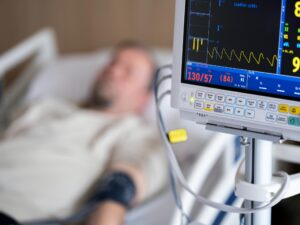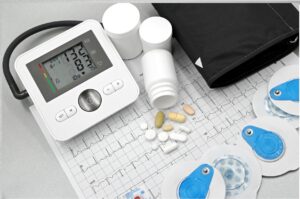Key Pointers:
- Palpitations feel like fluttering, pounding or skipped beats at rest or activity.
- Triggers include stress, caffeine, alcohol, dehydration and lack of sleep.
- Medical causes: arrhythmias, thyroid imbalance, anaemia or valve issues.
- Urgent care for chest pain, fainting, breathlessness or prolonged episodes.
- Evaluation may include ECG, Holter monitor and blood tests to guide treatment.
Sensations like a heart racing, fluttering, or skipping a beat can get you worried. These sensations, known as heart palpitations, can happen during moments of stress, after caffeine, or even without an obvious trigger. While many palpitations are harmless and temporary, others may signal an underlying heart issue that deserves attention.
In Singapore’s fast-paced environment, it’s easy to overlook these symptoms or blame them on anxiety. But understanding what causes heart palpitations and knowing when to act could make a vital difference.
What Are Heart Palpitations?
Heart palpitations are the sensation of a rapid, strong, or irregular heartbeat. You may feel them in your chest, throat, or neck. While they can come and go quickly, some people experience them frequently or with other symptoms.
Palpitations may feel like:
- A racing heartbeat
- Fluttering or flopping in the chest
- Skipped or extra beats
- A pounding sensation
These sensations can occur during rest, physical activity, or even while falling asleep.
Common Causes of Heart Palpitations
In many cases, heart palpitations are linked to lifestyle factors or temporary physical changes, such as:
- Stress or anxiety
- Excess caffeine or alcohol
- Lack of sleep
- Fever or dehydration
- Intense exercise
- Hormonal changes (e.g., during pregnancy or menopause)
However, they can also be caused by medical conditions, including:
- Arrhythmias (abnormal heart rhythms)
- Thyroid imbalances
- Low blood sugar
- Anaemia
- Heart valve issues
When palpitations occur frequently, last longer than a few seconds, or are accompanied by other symptoms, a medical evaluation is necessary.
When to Seek Medical Help
While occasional palpitations may not be dangerous, certain warning signs should prompt immediate attention:
- Chest pain or tightness
- Shortness of breath
- Dizziness or fainting
- Palpitations that last several minutes or occur regularly
- Family history of heart disease or sudden cardiac events
A consultation with a healthcare provider can help determine whether the palpitations are benign or require further investigation.
How Are Heart Palpitations Evaluated?
Diagnosis typically starts with a physical examination and a thorough discussion of your symptoms and lifestyle choices. Depending on the case, your doctor may recommend:
- Electrocardiogram (ECG): To check your heart’s electrical activity
- Holter monitor: A 24-hour wearable device to track irregular rhythms
- Blood tests: To identify hormonal or nutritional imbalances
- Echocardiogram or stress test: To assess heart structure and performance
Identifying the root cause helps guide treatment, whether it’s lifestyle adjustments, medication, or referral to a cardiologist for advanced care.
Don’t Ignore What Your Heart Is Telling You
Heart palpitations can be your body’s way of signalling stress, imbalance, or something more serious. Ignoring them may delay important care.
If you’re experiencing heart palpitations, especially in conjunction with other symptoms, or simply want some reassurance, Forte’s cardiology team is here for you. Schedule a cardiology Appointment with Forte today and take a proactive step towards a healthier heart!








